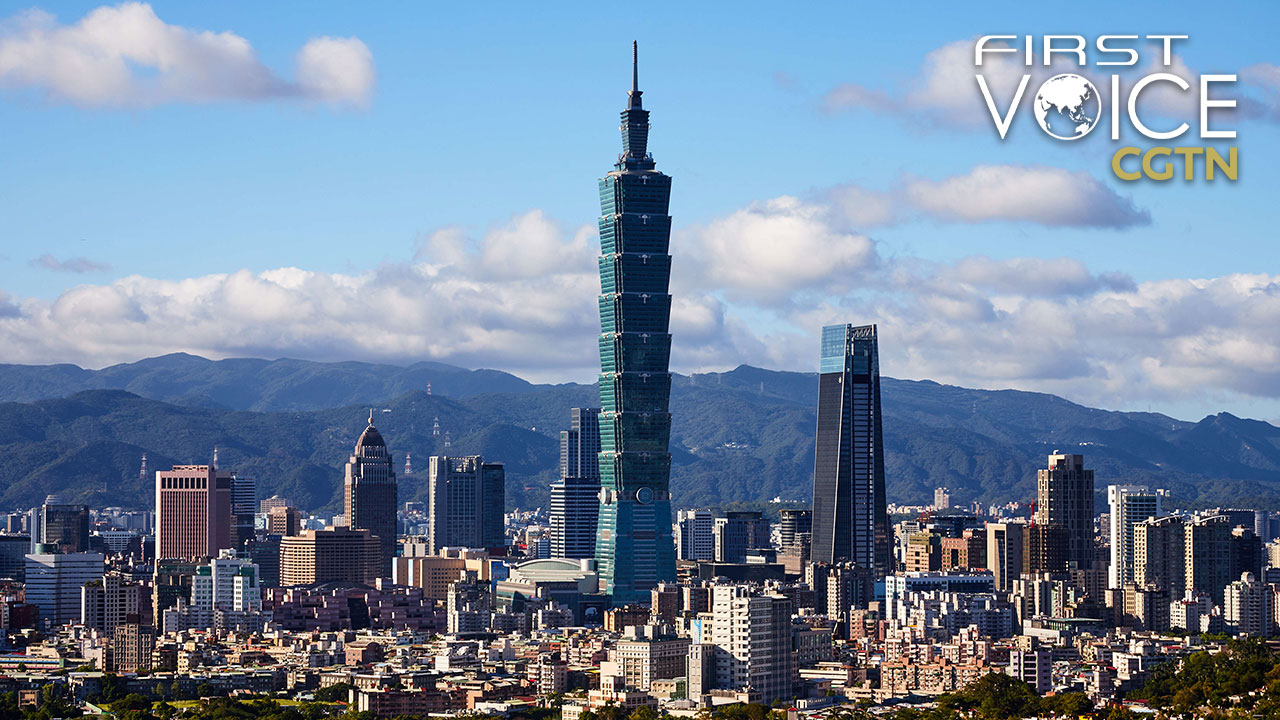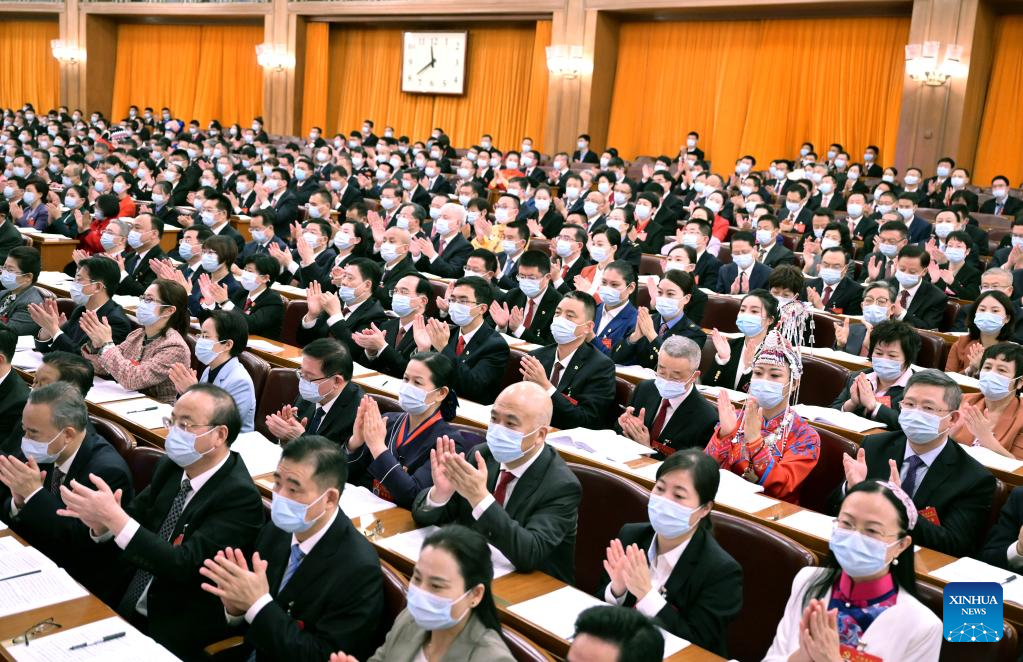
Editor's note: CGTN's First Voice provides instant commentary on breaking stories. The daily column clarifies emerging issues and better defines the news agenda, offering a Chinese perspective on the latest global events.
At the opening session of the 20th Communist Party of China (CPC) National Congress, Xi Jinping said that "resolving the Taiwan question is a matter for the Chinese, a matter that must be resolved by the Chinese." "We will continue to strive for peaceful reunification with the greatest sincerity and the utmost effort, but we will never promise to renounce the use of force, and we reserve the option of taking all measures necessary. This is directed solely at interference by outside forces and the few separatists seeking 'Taiwan independence' and their separatist activities; it is by no means targeted at our Taiwan compatriots," Xi said.
Out of a holistic, comprehensive and nearly 2-hour report on the status of China's development since the 19th CPC National Congress, only several minutes were spent on the Taiwan question. And these several minutes are what were seized by politicians in the West. The hardline anti-China hawk U.S. Senator Marsha Blackburn claimed that the "never promise to renounce the use of force" is a "threat" to Taiwan. Congressman Mike Waltz of Florida took the chance to repost photos from his ill-advised trip to Taiwan several days ago to reaffirm his "Stand with Taiwan" fervor. Kathleen Van Brempt, a Member of the European Parliament, called the report a "very dark and ominous message" that's "openly threatening Taiwanese democracy," and called on Europe to "reduce our dependence on China and build a democratic alliance with like-minded partners."
If anyone wonders why Xi's report emphasized "interference by outside forces," the examples above, and many more of this kind, would clarify it.
Over the past several years, the West, led by the United States, championed a new political trend of "supporting" Taiwan. Western politicians, who pride themselves of being a fighter for freedom or human rights, couldn't resist the temptations of having their photos taken there. Over the two successive U.S. administrations, high-level government officials, cabinet members, senators and congresspeople have been eager to hop on a plane to Taiwan in order to demonstrate their tough stance against China. Just as the 20th CPC National Congress were about to commence, the U.S. Senate start debating its 2023 National Defense Authorization Act which could include $6.5 billion in grant assistance to bolster Taiwan's military capabilities and up to $2 billion in loans, according to Reuters.

The 20th National Congress of the Communist Party of China (CPC) opens at the Great Hall of the People in Beijing, capital of China, Oct. 16, 2022. /Xinhua
The 20th National Congress of the Communist Party of China (CPC) opens at the Great Hall of the People in Beijing, capital of China, Oct. 16, 2022. /Xinhua
As Xi said in the report to congress, the Taiwan question must be resolved by the Chinese. The world has seen enough evidence of internal matters going from bad to worse and eventually to disasters when Western powers stand on their moral high-ground and stick their head into other people's conflicts. Libya and Syria are still searing with strife as foreign powers have become a part of the domestic problem-solving mechanisms. And interference in the Taiwan question could turn out to be more disastrous as the West has a clear objective for meddling in China's internal affairs – contain China's development.
It could also explain that, while the majority of Xi's report has been about the progress that China has made and intends to take for the future, the disproportionate amount of focus in the West has been about long-standing geopolitical issues such as the Taiwan question. For many Western politicians, China's success is neither good news nor a fact that should be known widely to their constituents.
As always, these politicians go where the attentions are. As Taiwan question becomes central to the China-U.S. relationship, the headline-chasers and attention-grabbers move to place themselves at the center of the "Taiwan" spotlight. But, just like all trending hashtags, the fad will fade away soon.
In the end, like Xi said, resolving the Taiwan question is a matter for the Chinese.
(If you want to contribute and have specific expertise, please contact us at opinions@cgtn.com. Follow @thouse_opinions on Twitter to discover the latest commentaries in the CGTN Opinion Section.)